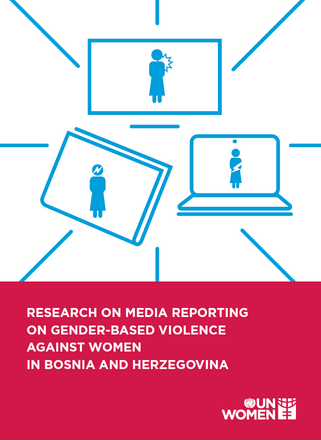
Media reporting on gender-based violence in Bosnia and Herzegovina
According to the study by UN Women, the media report on cases of violence against women almost daily, which testifies to the fact that the phenomenon is alarmingy widespread, but not invisible.
However, the nature of the media coverage of such cases leaves room for improvement in both analytical and ethical terms. First, reporting tends to react to individual cases, failing to address the issue in systemic terms - causes, patterns, implications. Second, coverage is sensational in nature and appeals to the audience's voyeurism - "the more brutal it is, the more attractive it is". Third, reporting tends to be exploitative of women's stories and the perspective of survivors is not voiced.
Based on the findings, the report suggests good practices for media in addressing gender-based violence. Recommendations include greater accountability in addressing discrimination, constant cooperation between the media and NGOs to raise awareness about this issue, and ethical reporting based on the existing Media Code and the Law on Gender Equality of Bosnia and Herzegovina.
The study, carried out under the three-year programme “Standards and Engagement for Ending Violence against Women and Domestic Violence in Bosnia and Herzegovina”, was funded by the Swedish International Development Agency (Sida).
Tags: Ethics of journalism Media and gender Bosnia HerzegovinaThe content of this article can be used according to the terms of Creative Commons: Attribution-NonCommercial 4.0 International (CC BY-NC 4.0) . To do so use the the wording "this article was originally published on the Resource Centre on Media Freedom in Europe" including a direct active link to the original article page.

